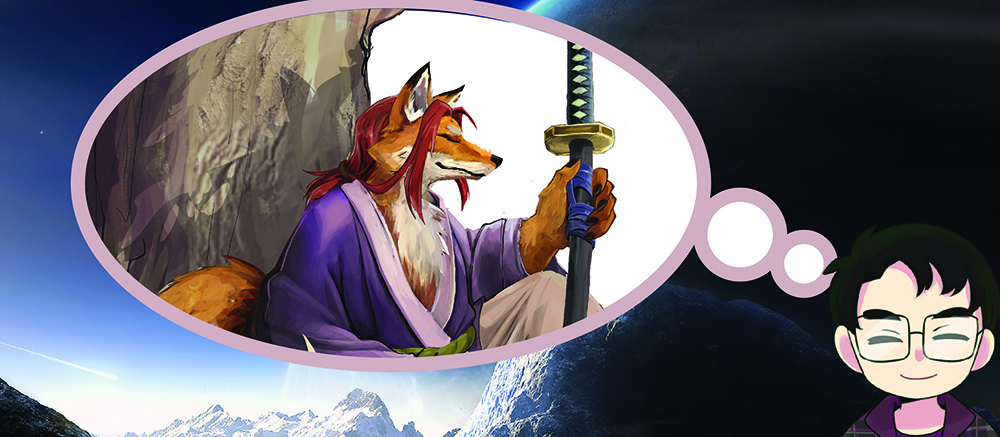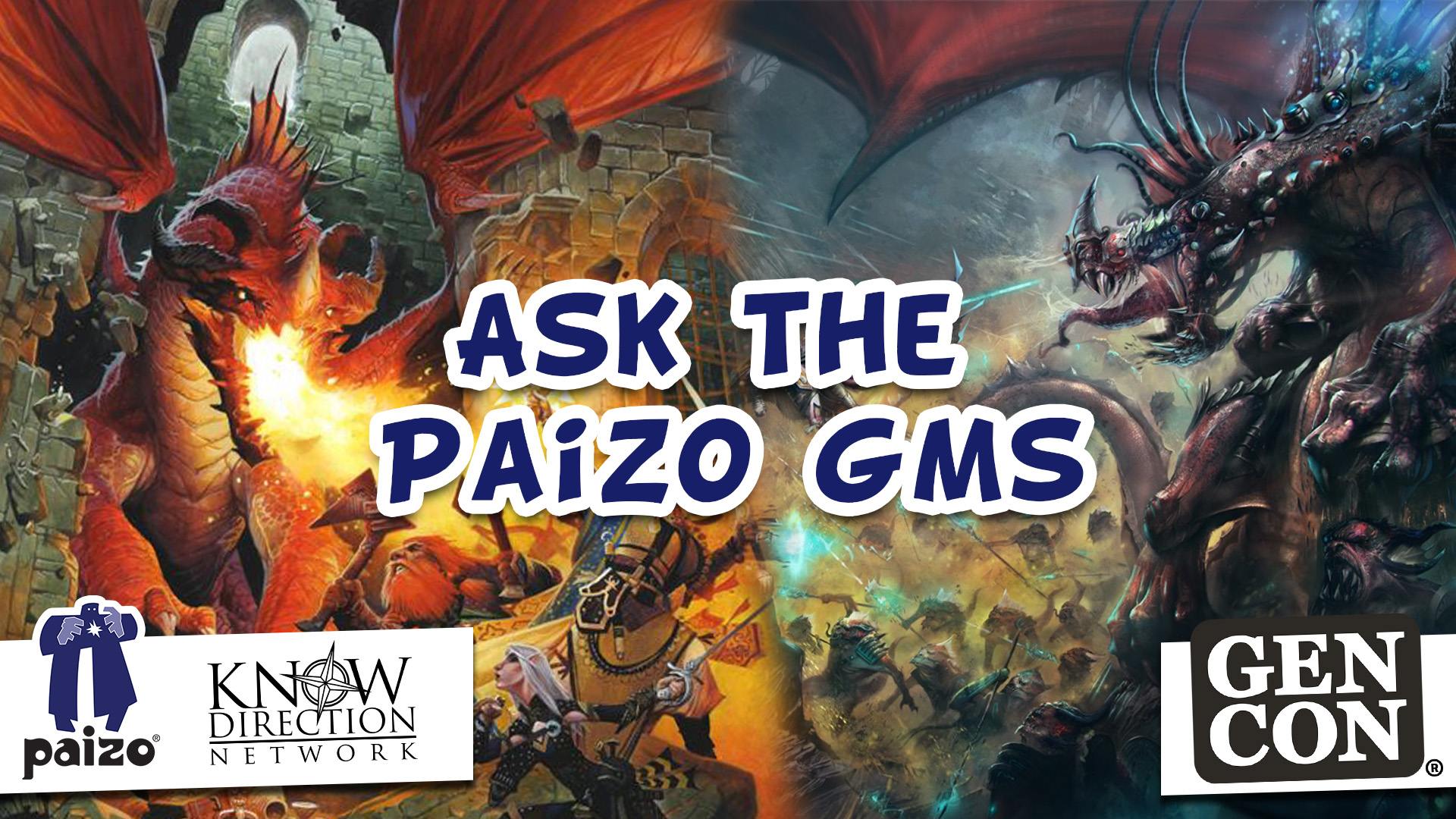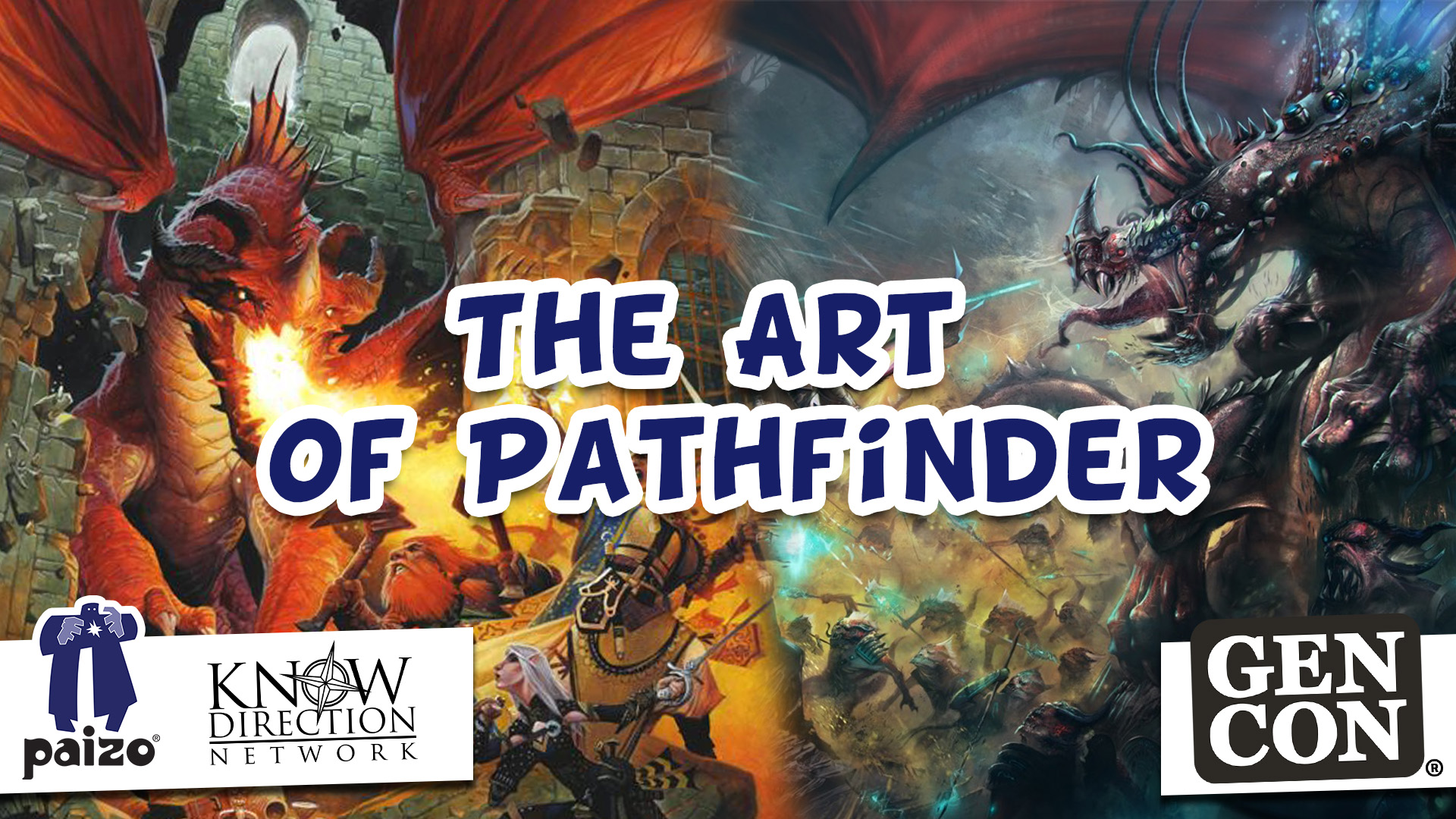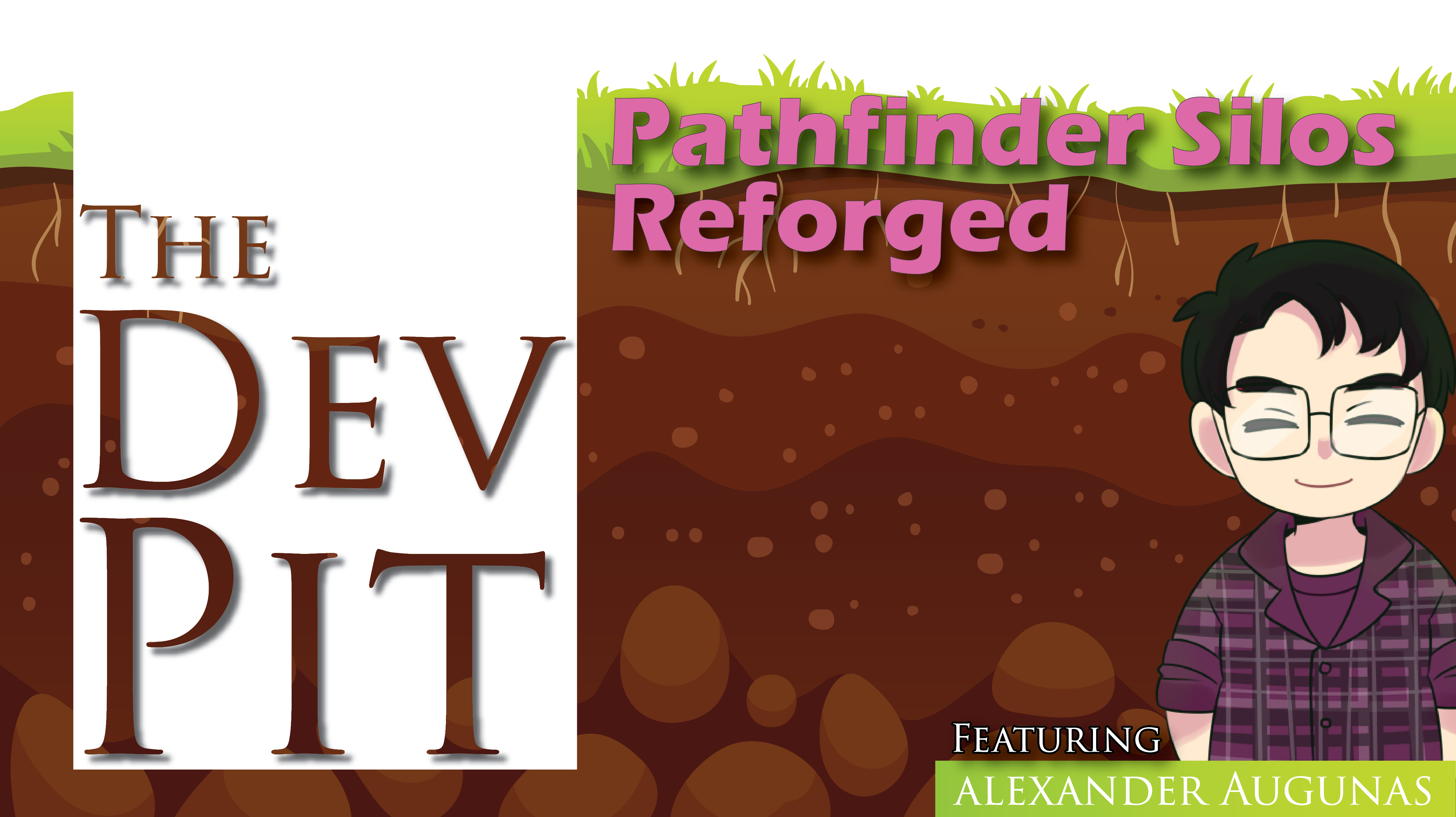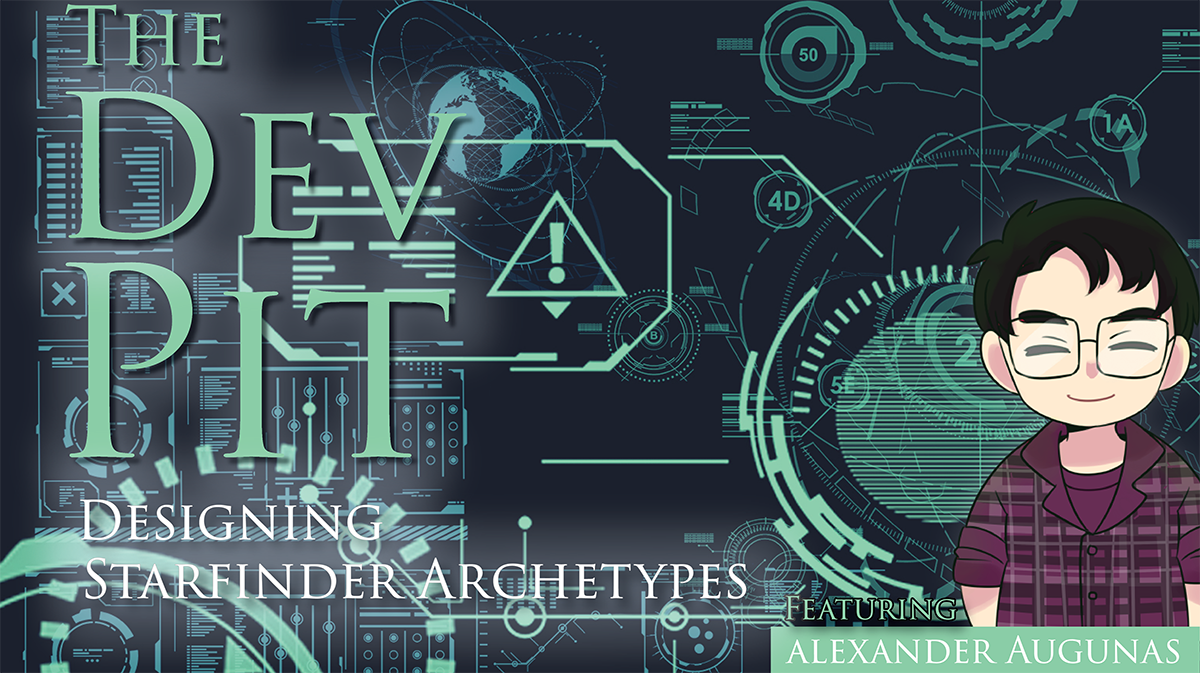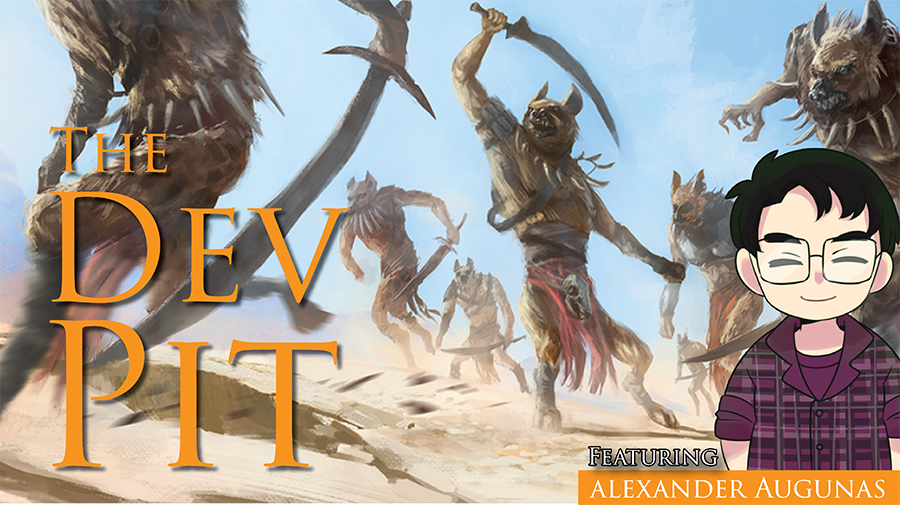Welcome to Dev Pit! I’m Alex Augunas, the Everyman Gamer, and stop me if you’ve ever heard this one before.
You’re on a writing deadline, something real important. Maybe it’s your term paper for school. Maybe it’s your turnover for an important deadline you’ve got coming up. Maybe it’s an email for work that you absolutely have to get doe. So you sit down at your desk, crack your knuckles and … you absolutely, 100% can’t do it. Now, this isn’t burnout—burnout is when you’ve worked too much and your body is just overcome with apathetic exhaustion. You’re not exhausted. Quit the contrary, you’re excited about something. Something that you have TONS of works in the back of your brain about that just keep buzzing around like bees, blaring at the top of their insectile voids to be heard and let out of your brain. You’ve never had an idea this good before, this well-formed, this full-to-bursting with potential and energy. This completely OFF-topic of the thing you have to do!
So, how do you handle it?
Understanding Your Muse
When you hear people talking about your muse, that voice in your brain that tells you what to work on is basically it. Your muse is your creative passions and energy, it’s the thing that your heart is telling you to work on, often to the exclusion of all other projects. Understanding your muse, your personal motivation is an important skill for a writer because there’s no faster way to burn out then to be out of touch with what your heart actually wants you to be spending your time on. Learning to read your muse is a skill in itself that requires you to be open and honest with your personal motivation—if you can’t be honest with who you are and what you want to be working on, you can’t really read your own motivations and as a result, it’s more likely that you’re going to be burning yourself out. So, what are we looking for when we analyze our muse? The following:
- What do I want to work on? Ignore all of your due dates, all of your obligations. Empty your mind and convince yourself that for a brief, fleeting moment, you have absolute freedom to create whatever you want. Ask yourself, “What would you create?” There’s a VERY good chance that whenever pops into your head is what you’re currently inspired to write. Other signs include, “What am I thinking about all the time?” and “What’s distracting me from my work?” The thoughts that pop in your head sporadically are often what you’re currently inspired by, and if something keeps popping into your head when you’re trying to work, chances are that’s your muse right there.
- How Long Will it Take Me to Do This? This is a question that is incredibly hard if you’re a new freelancer without a strong idea of how quickly you write, or if your muse is an open-ended project that doesn’t have an easy time limit. The question of time is a personal one, as the amount of time that it takes one person to write 2,000 words on a new ancestry isn’t the same as the amount of time it takes a completely different person to write 2,000 words towards an adventure. A great example for this would be Mark Seifter and Linda Zayas-Palmer, two of Paizo’s writers. (Mark is a member of the Pathfinder Design Team while Linda is the Lead Developer of Organized Play.) You wouldn’t expect Mark to be able to write 2,000 words of Pathfinder Second Edition Society boons as quickly as Linda, nor would you expect Linda to write 2,000 words of Champion feats as quickly as Mark. They are two different people with two different writing histories. A good way to gauge how long a project might take you is to ask yourself whether your muse is taking you in a direction that you have a lot of expertise in or not. If you have more expertise, that word count will go by faster. If you don’t, it’ll take longer.
- Will My Muse Let This Wait? This is a surprisingly important question, especially if you have other important projects on your plate. Sometimes you’re inspired to do something, but you don’t have time. Ask yourself the question, “If I jot down some notes and pick this up later, will my muse let me focus on the more important thing?” Sometimes the answer is yes. Sometimes the answer is no, but it is important to understand how important your current muse is important to you. You’ll know if you can let yourself wait to do the thing, or if you’re so excited you simply can’t wait any longer.
- Am I Able to Take This Detour? Before you hop on the muse train, an important question is, “Can you take this detour?” Sometimes you are too crushed for time and you simply can’t. Those are the worst of times, but sometimes you simply can’t indulge your muse. Write your ideas down with a sigh and keep moving on.
Example 1: Alex’s Secret Project
I thought it would be fun to give you all some examples of me undergoing this process and how I approached my own muse. Here’s my first tale: Alex’s Secret Project.
As a freelancer, you end up working on a ton of stuff you can’t really talk about. I currently have two such projects. and this story revolves around two of them: one of them for Paizo, and one of them a heartbreak. Neither of these projects have been publicly announced yet, so in the meantime I’ll refer to the Paizo assignment as STAR CHAMBER and the personal project as HS. Now, one of Owen’s last acts as Starfinder’s Lead Developer was to assign me to STAR CHAMBER, and the project was massive. It was about 25,600 words over the course of a month, which is extremely big, even for more. (It’s about the same size as the work I did on Character Operations Manual, in fact.) While this was going on, I had this personal project that has really been my muse for the past few years. It’s been something I’ve been working on slowly as I had the time, but in recent months leading up to STAR CHAMBER I had a lot of time to work on the project. And then STAR CHAMBER happened. It was pretty clear to me in the first couple of weeks on STAR CHAMBER that my head was still in HS, so I went over the above steps. I knew that HS was what I wanted to work on, but I had mental projections that the project would take me years to finish, while STAR CHAMBER had to be completely finished in a month, and STAR CHAMBER was extremely crunchy with a lot of system design that I had to work on. And ultimately, my muse would let it wait. So I put HS on hold, as much as my heart didn’t want me to, and used almost the entire month of June working on STAR CHAMBER. I got the project done and my developers were pleased. Hooray!
Here’s a second example of me evaluating my muse.
Picture me, Alex Augunas the Everyman Gamer, at GenCon. A strange set of circumstances wherein Perram refused to allow me to work for Know Direction at both major Cons left me in a position where my plan was to be recording all day, but I actually didn’t have to. So instead I wanted around, talked to people, met friends for lunch, and played plenty of Starfinder Society. Things were good and great; I even was assigned a dream job from my good friend Luis that I’ll tentatively call BEST GIRL. I was SO excited about BEST GIRL, you have no idea. (I mean, you will when BEST GIRL is announced and I get to tell you guys all about what I worked on, but for now you have no idea.) But when I sat down to work on BEST GIRL, something weird happened. Maybe it was the fact that my roommate, Robyn kept having the morning slot and the evening slot so I was running on like 8 hours of sleep over 48 hours. Maybe it was simply out of sadness or spite that kitsune weren’t gonna be in the Pathfinder Second Edition Advanced Player’s Guide. Whatever it was, after the Advanced Player’s Guide was announced I just could NOT get the ideas for a kitsune ancestry out of my head. And I really wanted those ideas gone, because I what I actually wanted to work on was BEST GIRL, but the buzzing muse literally would not let me work. So I went through my mental checklist: Clearly my muse wanted me to work on kitsune even though I wanted to work on BEST GIRL, and after a little bit of introspection I realized my muse didn’t want me to write all the flavor that a full ancestry would need, just the raw game mechanics like the base stats and ancestry feats and heritages. I had some experience with ancestries after writing the nashi, so I was confident I could hammer a lot of that out fairly quickly, probably within a few hours, and I was legitimately worried that I couldn’t focus on ANYTHING else until it was out of my system. And since I was at GenCon with the milestone for BEST GIRL over two weeks away, I knew I had the time to just write the kitsune ancestry out of my system. So I did. I think I wrote like 5 heritages and over a dozen feats, plus the base ancestry stats. I got it out of my system and was able to focus on BEST GIRL and other projects I wanted to do for Everybody Games simply because I stopped and took the time to confront how I was feeling and what I wanted to accomplish.
In Conclusion,
Your muse is not only your inspiration, in a way its your obsession in a given moment. Being able to identify what your heart wants to write about it and making time for that (if possible) is very helpful, as it makes you feel like you’re working on your own terms. Sometimes you can’t always do what your heart wants, and that stinks, but understanding what you want to be working on is an important step in being productive, as you can use your muse to motivate you on your other projects .There are TONS of times when I’m working on my personal projects and I say to myself, “Okay, I need to finish next week’s new Occult Skill Guide. I will write one page of that Occult Skill Guide, then return to my work on the thing my muse wants.” This is actually a behavior analyst technique (you know, that field I just spend two years getting my Master’s in) that uses science known as the Premack Principle. Basically, the idea behind the Premack Principle goes something like this, “If a behavior that has a high Motivation is contingent upon the completion of a behavior with a low Motivation, the frequency of the behavior with the lower motivation will increase as the individual attempts to gain access to the behavior they are more motivated to do.” Basically, if you make yourself do the thing you don’t like to get the thing you do like, chances are you’ll be more likely to do the thing you didn’t like to get the thing you want. It takes a lot of discipline, but I believe that all of you can do it. After all, you read this entire article to get to this point, right? RIGHT?
And that’s all I have to say about muses and motivation this week! Next week I think I’m going to do an Iconic Design on my Pathfinder Second Edition Bard for that Actual Play that I mentioned my friend Julia was starting next year, and then the week after that I think I am going to do a Starfinder Iconic Design that uses those adorable otterfolk that my Know Direction buddy Luis Loza wrote. Because I ABSOLUTELY want to do something with those fuzzy little water sasuages!
Until next time, take care!
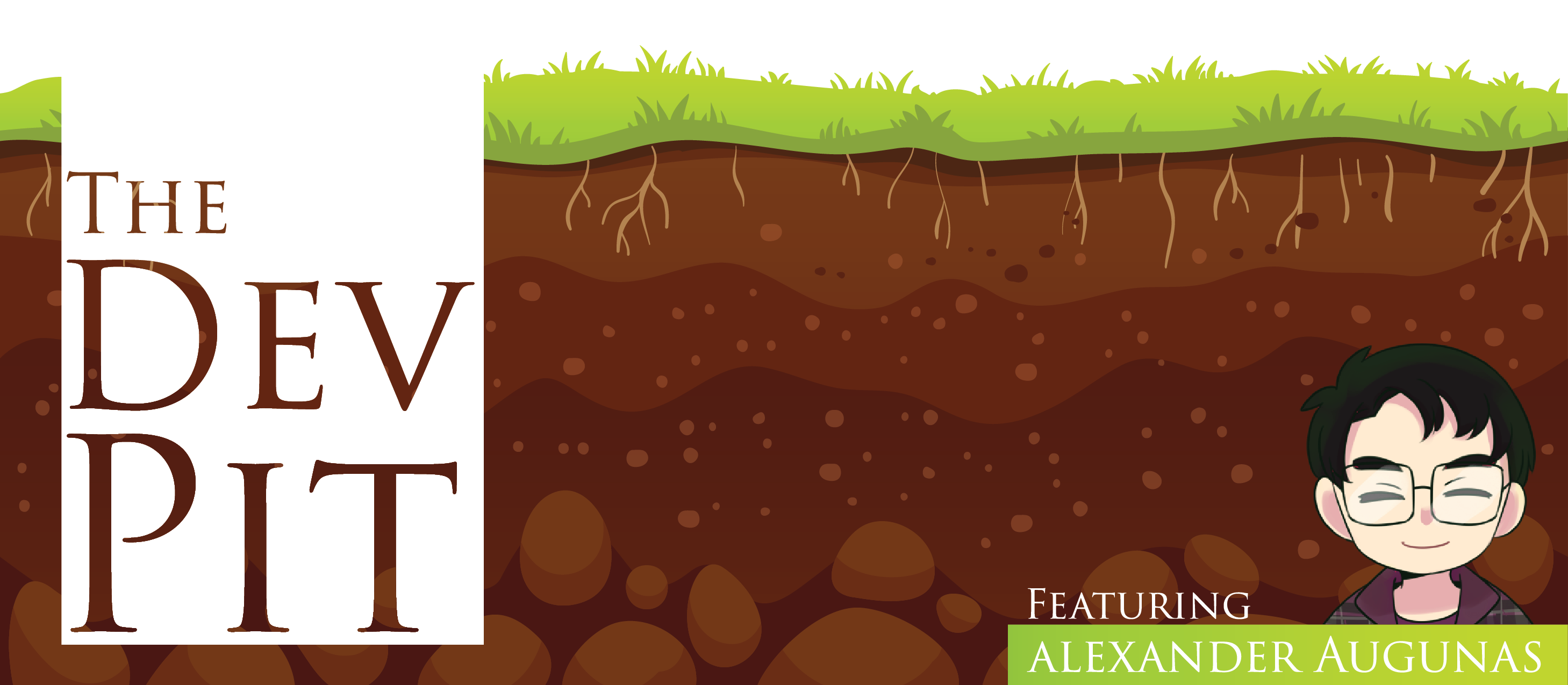
Alexander “Alex” Augunas has been playing roleplaying games since 2007, which isn’t nearly as long as 90% of his colleagues. Alexander is an active freelancer for the Pathfinder Roleplaying Game and is best known as the author of the Pact Magic Unbound series by Radiance House. Alex is the owner of Everyman Gaming, LLC and is often stylized as the Everyman Gamer in honor of Guidance’s original home. Alex also cohosts Know Direction: Beyond with Perram and James Ballod. Follow Alex’s Twitter @AlJAug!

